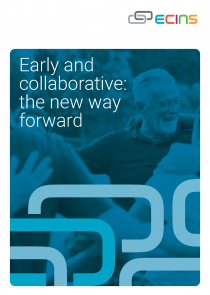1. Domestic violence teams are stretched to breaking point
The number of people who need help dealing with family violence can at times feel overwhelming. Budgets are stretched, and administrative staff are in a constant state of overwhelm as they struggling to keep up with workloads.
2. Waiting for claims to be processed can be life threatening
A backlog of cases to be processed can mean people are forced to remain in life-threatening situations while they wait for their paperwork to be processed. This not only has serious consequences for victims, it also presents a duty of care risk to support organisations.
3. Important information can be missed
When you are struggling under a burden of too many cases, it is easy for important information to be missed. This means the capacity for appropriate decision making can be compromised, which can have dire consequences for clients.
4. Outdated administrative setups mean people work longer and harder
The main way most people deal with an increase in referrals is to work harder and longer, using complicated administrative processes that waste enormous amounts of time as they process claims, often entering the same data into different forms time and again.
5. Insecure systems are putting vulnerable people at risk
Many people in domestic violence situations have their emails, phones and mail monitored by their partners. Sharing information in these insecure ways can put clients at risk. Yet for many organisations these are the only communication options they have.
6. Failing to protect client privacy can have dire consequences
Client privacy is a basic right that needs to be protected. It is not only key to maintaining respect and dignity, slips in this area can also have damaging ramifications on family, employment and wider social relationships.
7. To keep receiving funding you need to prove your value
Justifying your organisation’s worth to funding bodies requires the creation of complex reports backed by concrete statistics to demonstrate the value you bring to the family violence sector. This task eats away at the valuable time of highly skilled people in organizations.
But things can be easier. ECINS has many years of experience supporting organisations dealing with complex issues of family and domestic violence management including safety planning, crisis responses, accommodation and employment, transport, youth and family counseling and much more. We have spent millions of dollars developing our system, and it has already been tested in the most complex and challenging systems in the United Kingdom, including many police and family violence teams. There truly is nothing else like it in the world.
As a not-for-profit social enterprise our systems put the needs of vulnerable people at the heart of our solutions while helping those who support them do more with less. Contact us at support@ecins.com for a demonstration today.


